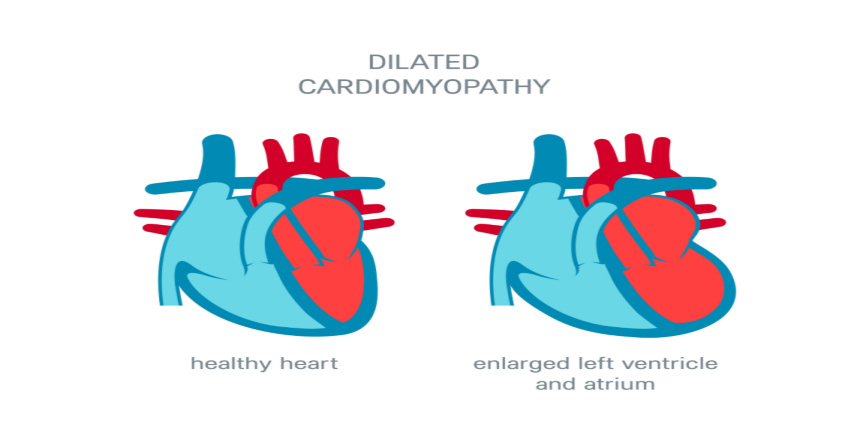DCM Full Form
What is the full form of DCM?
The full form of DCM is the Dilated Cardiomyopathy. is a condition in which the heart chambers expand and lose their capacity to contract. It frequently begins in the left ventricle (bottom chamber). As the illness progresses, it may extend to the right ventricle and atria (top chambers). The heart chamber weakens and contracts poorly as it spreads. The heart eventually can't pump as much blood forward as it used to. This causes fluid to accumulate in the lungs and throughout the body. This is known as cardiac failure.
- What is the full form of DCM?
- Causes of DCM
- What Signs and Symptoms Indicate Dilated Cardiomyopathy?
- Risk Factors For DCM

DCM is uncommon, but not uncommon. It affects males more than women and primarily individuals aged 20 to 60.
Causes of DCM
DCM can be caused by a variety of factors, including:
HIV and Lyme disease are two examples of infections.
Polymyositis is an example of an autoimmune illness.
Alcoholism, cocaine usage, heavy metal exposure, and some chemotherapeutic medicines.
Thyroid disorder
Diabetes
Their blood pressure is high.
In response to a heart attack or clogged arteries in the heart (coronary artery disease).
Heart valve issues
Problems with nutrition or electrolytes (rare in the United States)
Pregnancy (develops just before or after delivery) (develops shortly before or after birth)
Muscular dystrophies are genetic disorders.
What Signs and Symptoms Indicate Dilated Cardiomyopathy?
DCM may not have any symptoms in its early stages. Symptoms may worsen gradually or rapidly. Among the symptoms are:
Exertion causes shortness of breath (may progress to shortness of breath when at rest)
When resting down, you may have shortness of breath.
Shortness of breath that wakes you up in the middle of the night
Fatigue
Reduced capacity to be physically active and exercise
Leg and other regions of swelling
Fainting
Weakness or feeling dizzy
Cough
Heart rhythm irregularities
Risk Factors For DCM
The following are risk factors for dilated cardiomyopathy:
Certain illnesses, such as hemochromatosis, cause heart muscle damage.
Dilated cardiomyopathy, heart failure, or sudden cardiac arrest in the family
Valve disease of the heart
Heart muscle inflammation caused by immune system illnesses such as lupus
Excessive alcohol or illicit drug consumption over a long period.
Chronic high blood pressure.
Muscular dystrophy is an example of a neuromuscular condition.

